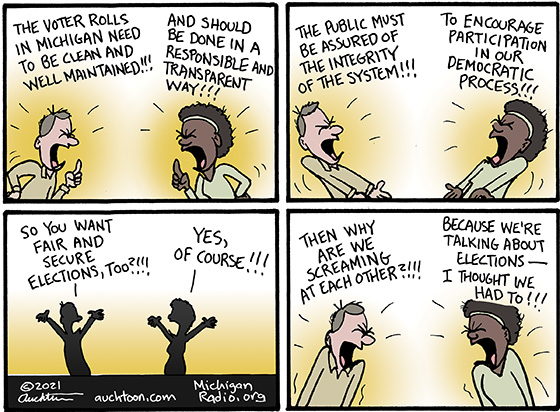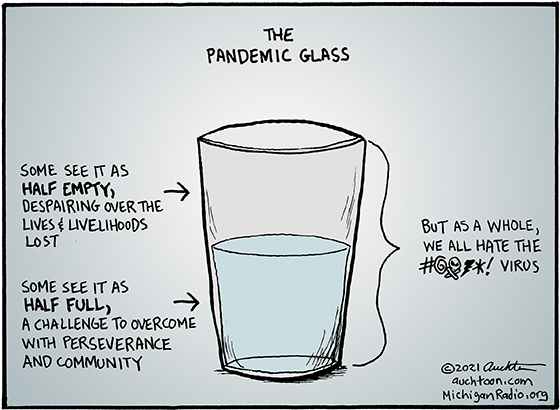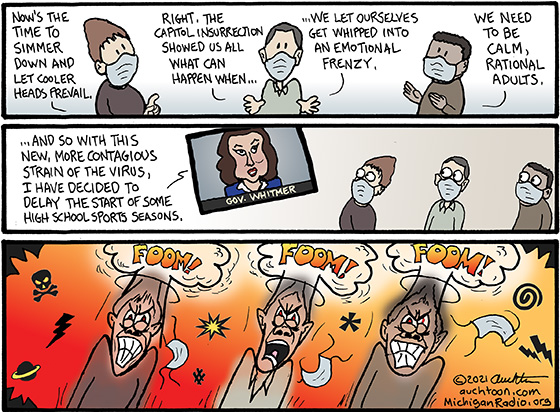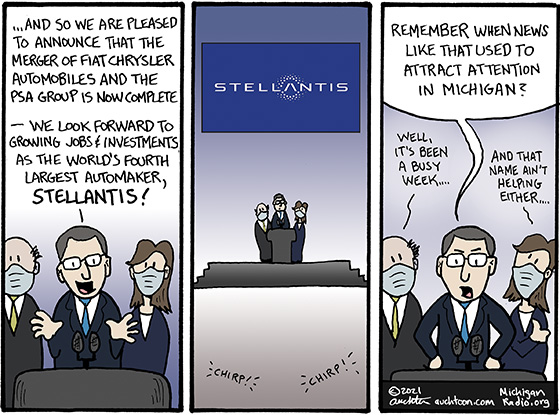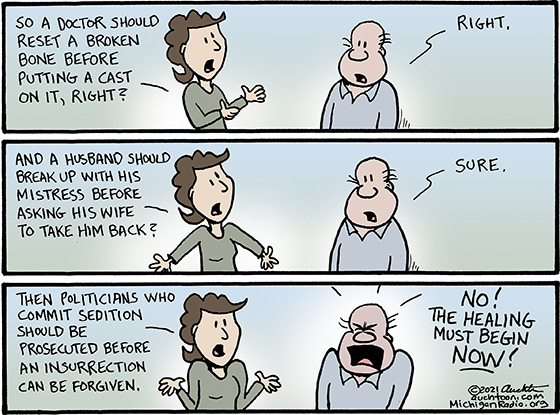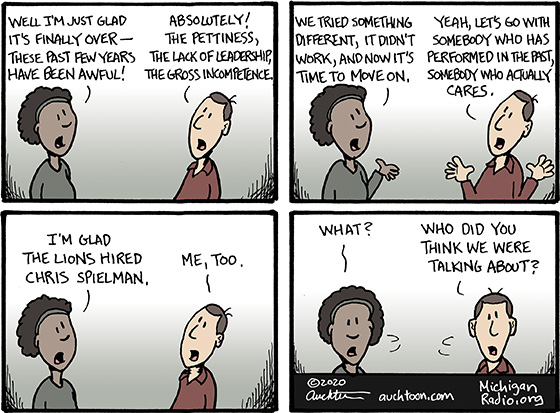Mike Shirkey Did It Again!

The Michigan Senate Majority Leader, Mike Shirkey, has been on quite a roll lately. And not in a good way. This week on a radio show he managed to confirm that he is a responsible adult…and then immediately confirm that he is not in fact a responsible adult.
In this instance, he acknowledged that President Joe Biden won Michigan by more than 154,000 votes, but followed that up by saying the state didn’t do enough to ensure election integrity — specifically that too many dead people voted. (Please refer to the Free Press story if you don’t know why it is a baseless conspiracy theory.)
Just last week news broke of Shirkey’s disastrous meeting at a diner, where he shared his thoughts that the January 6th insurrection at the U.S. Capitol was a hoax and that former President Donald Trump was not responsible for it. He also added some oddly sexualized smack talk about outmaneuvering Governor Whitmer. In the radio interview, he attempted to clarify (with mixed results and without apology).
Shirkey is making it very difficult for us to remember his proudest moment — going to the White House in November and managing not to sell us all out by throwing the Michigan electoral college votes to the loser. (Kind of a low bar there.)
So, either Shirkey knows what he’s saying and he’s doing it purposefully to string along Trump supporters in the GOP. Or he actually believes it. Either way, this is not the Senate Majority Leader that Michiganders want or deserve.
